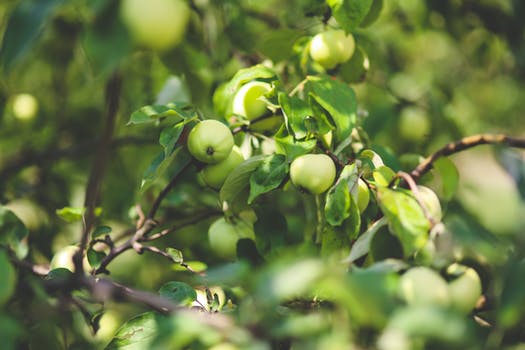The story of Adam and Eve and their fall from Eden is familiar to most everyone, even to those who choose to see it as nothing more than a fairy tale. Not so familiar are the many truths about our own lives and our relationship to God that can be learned from our common ancestors. One such truth is the means by which Eve allowed sin to become a part of her life, and by extension all our lives.
In Genesis 3:6, we see that there were three motivating factors behind Eve’s decision to take of the forbidden fruit. Eve “saw that the tree was good for food, and that it was pleasant to the eyes, and a tree to be desired to make one wise”. In each of these motivating factors. we see Eve willingly moving away from the provision of God and toward a desire for independence.
In seeing the tree as good for food, Eve takes a step toward rejecting God by looking beyond the expansive provision of food He had given in Eden. In 1:29, God tells Adam and Eve that every herb and every tree in the garden are to be for food for them. This is stated again (of the trees, at least) in 2:16, along with the 2:17 admonition against eating of the tree of knowledge of good and evil. To say that Adam and Eve’s supply of available food was vast is a misnomer. Vast doesn’t begin to describe the food available to them. Here was the most lush and productive garden ever known to man. There was no end to the food, and no end to the variety. The food that God had given them was beyond adequate to an infinite degree. But instead of being grateful for that to which she does have access, Eve fixates on what she cannot have. The desire for that forbidden fruit begins to grow within her. It should be noted that in having that desire, she still has not sinned – but she’s begun to formulate what her flesh will eventually convince her is a valid reason for doing so. She is about to turn away from God’s provision and substitute her own.
Eve also sees that the tree “was pleasant to the eyes”. Again, imagine the expanse that was the garden of Eden. How pleasant it must have been. Imagine too the pleasure Eve must have found in Adam. He was literally the only man on earth, and she had literally come from his flesh. They had none of the concerns of this life that often weigh on couples today and keep us from enjoying one another to the fullest – no bills, no health problems, no home repairs, no one else to annoy or anger them, not even any children to care for at this point. All they had to focus on was one another. But the immense pleasure given to her by God was not enough. She begins to take her focus off the pleasure He has made available to her and to seek her own substitute.
Finally, Eve sees “a tree to be desired to make one wise”, and this is the tipping point. Until now, Eve has used her senses to consider things about this tree that she likely had considered before. No doubt she’d seen the fruit hanging there before, and been pleased at the sight of the tree. Now she goes a step further and formulates a thought outside of her senses that is based on a twisted deception from Satan. Satan uses God’s description of the tree – knowledge of good and evil – and tells Eve that in eating of it she will know all that God knows. It is a simple deception, but one that reaches to the very heart of sin – the desire to be completely independent and free from subjection to any being, any law, any consequence, any thing. In Eve’s pre-fall life we see the human race perfected. There is no death. No sickness. No pain. No work. No disappointment. No depression. No failure. No addiction. No decay. No rejection. The list goes on forever. There is nothing in the life God has given Eve which is anything less than perfect. But it’s not enough. Here she takes her focus off the position God has given her and makes the final decision to take hold of her own substitution.
Once she has given serious consideration to her own substitutes for the provision, pleasure, and position God has given her, Eve is only a simple arm’s reach away from the act of sin which will bring destruction upon all of mankind. The lesson for us is clear: accept no substitutes. Satan and his followers in this world are constantly at work ensuring that endless substitutes are available, pleasant, and seemingly beneficial to us. But behind that image and at the heart of Satan’s substitutes is destruction and separation from God. The true follower of Christ must be vigilant in wariness of substitutes, and determined to never accept less than God’s best in any area of his or her life.
